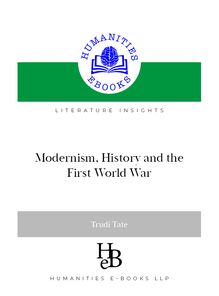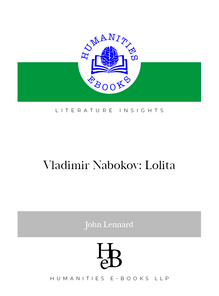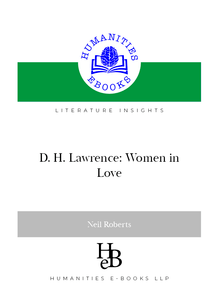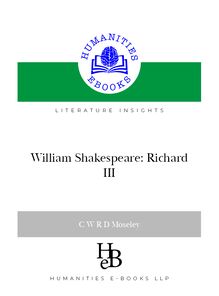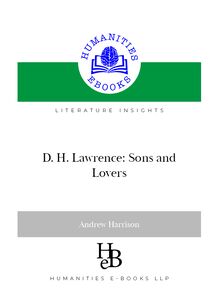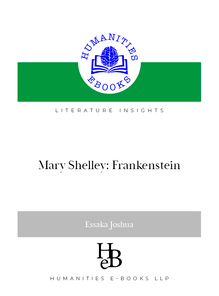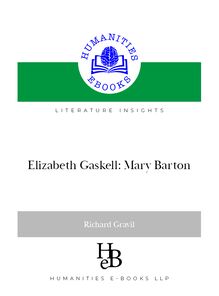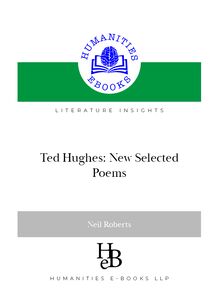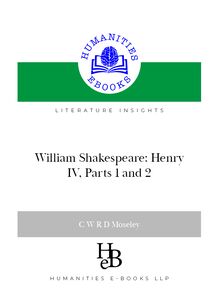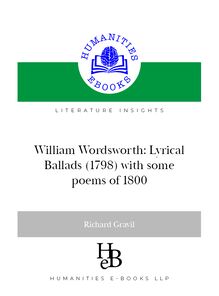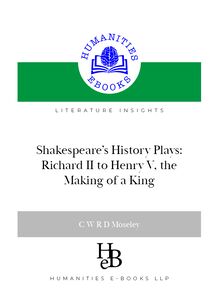-
 Univers
Univers
-
 Ebooks
Ebooks
-
 Livres audio
Livres audio
-
 Presse
Presse
-
 Podcasts
Podcasts
-
 BD
BD
-
 Documents
Documents
-
- Cours
- Révisions
- Ressources pédagogiques
- Sciences de l’éducation
- Manuels scolaires
- Langues
- Travaux de classe
- Annales de BEP
- Etudes supérieures
- Maternelle et primaire
- Fiches de lecture
- Orientation scolaire
- Méthodologie
- Corrigés de devoir
- Annales d’examens et concours
- Annales du bac
- Annales du brevet
- Rapports de stage
La lecture à portée de main
126 pages
English
Découvre YouScribe en t'inscrivant gratuitement
Je m'inscrisDécouvre YouScribe en t'inscrivant gratuitement
Je m'inscris
Obtenez un accès à la bibliothèque pour le consulter en ligne
En savoir plus
En savoir plus
126 pages
English
Obtenez un accès à la bibliothèque pour le consulter en ligne
En savoir plus
En savoir plus

Description
Students with little or no prior experience of studying Shakespeare in depth will find very useful the summaries of the conclusions of recent research into theatrical conditions, conventions and concepts in the time of Shakespeare. After an overview of Shakespeare’s life and career, the book summarises Elizabethan attitudes to History and Politics, concepts of the cosmos, theological issues such as Free Will and the Fall of Man, and the tensions that ultimately destroyed consensus on these matters. Discussion of expectations of different types of plays then precedes detailed analysis of Henry IV’s structure, genres and literary strategies, and of the major themes it explores. The play is firmly placed in the sequence of history plays from Richard II to Henry V. A chapter examines fully the issues surrounding the Education of a Prince for rule, concluding with full exploration of the part played by Falstaff. The final chapters examine the conceptual and ideological implications of the play’s languages and styles, and the career of the play, which, especially in Part 1, has been greatly successful in later ages when its original topicality is quite forgotten. There is an Appendix listing some extant History Plays, and copious explanatory hyperlinks.
Sujets
Informations
| Publié par | Humanities eBooks |
| Date de parution | 11 janvier 2021 |
| Nombre de lectures | 0 |
| EAN13 | 9781847600400 |
| Langue | English |
| Poids de l'ouvrage | 1 Mo |
Informations légales : prix de location à la page 0,0200€. Cette information est donnée uniquement à titre indicatif conformément à la législation en vigueur.
Extrait
space space
Literature Insights General Editor: Charles Moseley
Running Head 1
William ShakespeareHenry IVParts 1 & 2
C. W. R. D. Moseley
‘Falstaff, this aged whoremaster and drunkard, this gluttonous coward,thief, extortioner and murderer…’ http//www.humanities-ebooks.co.uk
Publication Data
© C W R D Moseley, 2007
The Author has asserted his right to be identiîed as the author of this Work in ac-cordance with the Copyright, Designs and Patents Act 1988.
Published in 2007 byHumanities-Ebooks.co.uk Tirril Hall, Tirril, Penrith CA10 2JE
Reading Options
*To use the navigation tools, the search facility, and other features of the Adobe toolbar, this Ebook should be read in default view. *at the leftTo navigate through the contents use the hyperlinked ‘Bookmarks’ of the screen. *To search, expand the search column at the right of the screen or click on the binocular symbol in the toolbar. *For ease of reading, use <CTRL+L> to enlarge the page to full screen *Use <Esc> to return to the full menu. *Hyperlinks appear in Blue Underlined Text. *Appendices are Indicated in blue text without underline. Licence and permissions
Purchasing this book licenses you to read this work on-screen and to print one copy for your own use. Copy and paste functions are disabled. No part of this publication may be otherwise reproduced or transmitted or distributed without the prior written permission of both the copyright owner and the publisher. Making or distributing copies of this book constitutes copyright infringement and would be liable to pros-ecution. Thank you for respecting the rights of the author.
ISBN 978-1-84760-040-0
William Shakespeare: Henry IV, Parts 1 and 2 C. W. R. D. Moseley
Literature Insights. Tirril: Humanities-Ebooks, 2007
A Note on the Author
Dr Moseley is Fellow and Tutor of Hughes Hall, Cambridge, and Director of Studies in English for that College and for St Edmund’s College. He teaches Classical, mediae-val and Renaissance literature in the English Faculty of the University of Cambridge, and has written many books and articles, not all in his specialist îelds. He has lec-tured and taught frequently in the United States and Europe. He is a Fellow of the Society of Antiquaries of London and of the English Association. A member of the Society for Nautical Research, he has travelled widely in the Arctic, and is a member of the Arctic Club. In this series, of which he is General Editor, he has so far written Insights on Shakespeare’sRichard III,andThe Tempest, as well as a companion to our Shakespeare Insights entitledEnglish Renaissance Drama: a Very Brief Introduction to Theatre and Theatres in Shakespeare’s Time, which he hopes you will enjoy and înd useful.
Contents
Introduction 1. William Shakespeare: a Brief Life 2. Some Elizabethan attitudes 2.1 History and Politics 2.2 The Model of the World 2.3 Free Will and the Fall of Man 2.4 Macrocosm and Microcosm 2.5 The Failure of the Model 3. Expectations of Drama 4.Henry IV: Structure, genres and literary strategies 4.1 Sequels and sequences 4.2 Themes 4.3 History, Tragedy and Chronicle 4.4 The Shadow of Tragedy 4.5 ‘Bi-polar’ structure:Henry IVand re-inventing the Morality 5. Metaphor, symbol and themes:Henry IVand its sequence 6. ‘This royal throne of Kings’ 6.1 Educating Hal: Honour and Hotspur 6.2 Educating Hal: Policy and John 6.3 Educating Hal 3: Falstaff and Folly 7. A Trim Reckoning: Language And Rhetoric 7.1 Rhetoric 7.2 A Confusion of Tongues: language, speech, metaphor inHenry IV 7.3 A rhetoric of rule 8. (In)Conclusions 9. Further Reading Appendices
Introduction
Elizabethans expected plays to amuse and divert them. If they did not, their authors and the companies they worked for did not make a living in a very cut-throat market. In the new permanent commercial theatres of the later Elizabethan period, attitudes to drama and expectations of itsconventionshad been formed by centuries of religious and ritual drama – the Mystery and Morality plays. And although by deînition what we see on the stage is not ‘the real thing’, but a representation, neither that nor its amusement value prevents theatre being a highly self-conscious and serious intellec-tual pursuit, recognized as such by audiences and playwrights, actors and critics. The profundity of Shakespeare’s concerns and their analysis in his plays may be unusual in degree, but those concerns are shared by his fellow-dramatists. 1 This book deals with only one (large, two-part) play, but that play is very much part not only of one man’s work with a particular group of actors, but also of a general theatrical culture which was one of the only two mass media of the period, to which everyone, more or less, went and to which nobody could not have an attitude. (The other was sermon.) I therefore RECOMMEND STRONGLY THAT THIS BOOK BE READ IN CONJUNCTION with myEnglish Renaissance Drama: a Very Brief Introduction to Theatre and Theatres in Shakespeare’s Time (hereafterVery Brief Intro.) in this series. What follows is based in some degree on the assumption that it will be. Those familiar with what we know about Shakespeare the man and the back-ground of Elizabethan culture can skip Chapters 1 and 2 and go straight to the discus-sion of the play, always bearing in mind the close connection in that society between theatre and politics: theatre provided one of the few spaces where the undiscussable could be discussed through a fable and a large number of people at once could in the ritual space of the theatre face the problems of the real world transmuted into îction. No wonder the authorities were so nervous of the theatres, and keen at the same time to use to their own purposes. The audience’s interest in history at all suggests not
1 There was quite a fashion in the 1590s for two or even three part plays, performed (so it seems) on consecutive afternoons. The commercial advantage was that the audience came twice, paying each time. There were, as we shall see, artistic bonuses too.
Henry IV, Parts 1 and 2
mere curiosity about the past—which could be much more easily satisîed than by a play—but rather an attempt to understand the nature of the political and moral issues that beset them in their own time by, so to speak, isolating them in the test-tube of history. This was an age, after all, when the relationship between the ruled and the ruler was of passionate and overwhelming interest—to the point where death itself was not too high a stake; when the obligations of the one to the many (and vice versa) were problems not merely of morality but of politics too; when a sense of distinctive nationhood was fostered by insecurity at home and trouble abroad; when, înally, men and women were hesitantly but to at least some extent consciously mapping out the sort of society they felt to be just and to strike the right balance between the things that are of Caesar and those that are God’s. The old image of the body politic acquires a new force; it is made up of its many members, but how are those members to agree together in a common purpose? The body politic’s distempers in the past may suggest a better understanding for those in the present. Shakespeare’s vision of English history is no unthinking acceptance of any Panglossian myth that all is for the best in the best of all possible worlds as long as a Tudor înally gets the throne. He is very aware that Tudors too are fallen beings who judge wrongly and destroy things of value: the dignity he gives Wolsey in his fall and the heroic patience and pathos he gives Queen Catherine inHenry VIIImake that clear, and his endorsement of Henry Tudor at the end ofRichard IIIlooks pretty per-functory. Even his political victors and heroes are awed. He shows a Bolingbroke who never knows peace, mental or political, after Richard II’s death; the opposition to him would literally dismember the body of England to satisfy their own desire for power; his son Hal is aware almost to despair of the huge moral burden the king must bear as a ruler as well as of his inherited burden of guilt and injustice. Shakespeare is exploring, it seems, the very nature of rule and of political relationships in the body politic. One of the greatly interesting aspects of the plays dealing with historical material lies in the way that material opens up the issues of order and harmony in a state, which are all very well when outlined theoretically—as they are by Ulysses, whose speech I quote below. But, alas, the theory rarely accords with the observed practices of men. As will be clear, I discuss this play from the perspective of its place in a sequence. It would therefore be wise for readers of this book to knowRichard IIandHenry V, as I shall have to refer to them frequently.
1. William Shakespeare: A Brief Life
We know far less—though not nothing—about Shakespeare than we do about almost any other European writer of stature since the Middle Ages. As a result, far more has been written about him, his life and his deepest thoughts than almost anyone else. The speculative to the bizarre been well represented, and the ‘authorship question’has added to the gaiety of nations. He was born in 1564, probably on April 23, at Stratford-on-Avon, to John Shakespeare, a substantial citizen of that religiously con-1 servative town, and his wife Mary Arden. He died there in 1616. Shakespeare was a man of the later renaissance in the peculiar form it took in England. We do him a great disservice if we ever ignore that fact. His lifetime coin-cides with a period of rapid, painful and far-reaching changes and uncertainty in matters of politics and religion, and in ideas of the nature of the world and of man. Old certainties, if not abandoned (as they werenot entirely), were being radically redrafted; new ideas, new structures, new pressures had to be accommodated. This was not a happy time. Religious divides ran deep, extending to execution and judicial torture, and often coinciding with the fault lines of interest and bad-tempered political allegiance. Shakespeare cannot have not shared the anxieties of his time. His father was certainly a Catholic all his life, and suffered for it; William had relatives (through his mother) who were martyrs; he could well have been a Catholic too, though, even more so than for many folk, his own views are elusive—and one thing you cannot do is read off certainties about the life and beliefs of the writer from the extraordinarily complex co-operations that made plays in this period. Shakespeare was also some-thing of a Johnny-come-lately, an outsider, for unlike nearly all his fellow poets or dramatists, he was neither noble, nor from the universities of Oxford or Cambridge or the law schools of the Inns of Court. His education stopped, so far as we know, with the very good grammar school education of Stratford, which gave him the grounding
1 Useful biographies, making as much of the evidence we have of his life and his context as pos-sible, are those by Park Honan,Shakespeare: A Life(Oxford, 2000) and Katherine Duncan-Jones, UngentleShakespeare (Arden, 2001).See also the suggestions advanced by Richard Wilson,Secret Shakespeare(2005) and Clare Asquith,Shadow Play(2006). See also my brief essay, ‘William Shakespeare’, inThe Continuum Encyclopaedia of British Literature,ed. S. Seraîn¸(Continuum: New York, 2000) .
Henry IV, Parts 1 and 2 9
in the Latin Classics that formed the common bedrock of reference, the templates for understanding, of any person of even moderate education in the Europe of his day. He had no advantage from any connection with any noble house. He made his way simply by his extraordinary facility with words and what they could do. Yet we know almost nothing about even the facts, let alone the inner life, of Shakespeare the Man. We have no letters, no diary, a tiny amount in his handwriting, a problematic will. We have some enigmatical sonnets, which have often been taken, but on very shaky grounds, as a distorted mirror of some of his deep affections. We have two assured and stylish up to the minute poems written for clever-clever young men, of which he was obviously proud; and we have a clutch of plays, none of which he ever bothered to see through the press. He wrotelessthan some other major authors of his time— and most of what he wrote was in the rather down-market form of plays, not regarded as serious writing at all until the very end of his career. He left no body of theoretical or critical writing behind him, as did Lope de Vega or Ben Jonson. He does not even seem to have had a particularly high reputation as a writer of plays during his work-ing life, though his company was certainly regarded as the foremost. He was, and (and if the evidence of the dedication ofVenus and Adonis and Rape of Lucreceis anything to go by) wanted to be thought of as, a writer, a poet, in the line that stretched back through Chaucer to the great poets of Rome: especially Vergil and Ovid. He clearly read deeply in Vergil and Horace and, especially, Ovid: their inuence, even direct borrowings, is apparent not only in those early poems, Venus and AdonisandLucrece,designed for a cultivated audience—where one might expect such echoes—but also all over plays designed for much more heterogene-ous audiences. It is important to recognise how alert Shakespeare was to Classical culture, and expected his audiences to be so too. Not only was knowledge of Vergil and Ovid well diffused even among those with no Latin, but the history and politics of Rome, the memory of its Empire, helped form the models on which Renaissance people articulated their understanding of their politics and their theories of the state. The Christian culture of sixteenth-century Europe relied for its educational materials almost entirely on the pagan Classical inheritance: an intriguing irony. But it is more than that: for the Christian, with the beneît of Revelation, resembles a dwarf sitting on the shoulders of the giants of Antiquity. He could not see at all without their sup-port, but can see further than they can. And so Ovid, Vergil, Cicero, Livy, Seneca, are properly brought into the service of a Christian culture, a Christian world view, that sees all world history as a narrative that will eventually end with Apocalypse. There are many writers, thinkers and rulers in Shakespeare’s lifetime—including, perhaps,
Henry IV, Parts 1 and 2 10
the man himself—who really thought that Apocalypse might be very soon, and that in it, England, that ‘other Eden, demi-Paradise’, as John of Gaunt inRichard IIcalls it, would have a special role to play. There are several years when we have no idea what he was doing, and so much can be, and has been, written. But by the late 1580s he was in London, connected with the intelligentsia, a world of writing, often for the new theatres (a place of some risk, given the dour attitude of the authorities to theatre and players), where fortunes could be made and powerful patrons found. For most aspiring writers, to înd an aristocratic (and rich) patron was the îrst step to security, as the commercial world of writing, where fortunes depend on sales, is only just being born. Possibly Shakespeare’s two ‘Ovidian’ poems,Venus and AdonisandRape of Lucrece(1593/4), dedicated to the young, extraordinarily rich Earl of Southampton, and both calculated to appeal to young, male, classically educated readers, were attempts to secure such a patron, at a time when earning from the theatre was nil as the theatres were closed because of an outbreak of plague. They are, actually, the only two works he ever bothered to see through the press and sign. They certainly, in some sense, replied to fashionable Ovidian poems like, for example, Marlowe’sHero and Leander.(‘Anything you can do…’). If, as is likely, many of theSonnetsdate from this period, we may glimpse in them something of the rivalry for patronage between talented writers, of the deploy-ment of the extremest language of affectionate friendship that attended a relation-ship with a patron, and something of the beneîts Southampton, or any patron, might gain from having a writer in his circle: a lot of kudos and a sort of immortality—as Shakespeare puts it, ‘So long lives this, and this gives life to thee’. But Southampton, who was not the cleverest of fellows, did not bite, and Shakespeare ended up not as a great man’s secretary, but as a dramatist. By the early 90s he is being noticed, enviously, in that strange new world of the commercial theatre. Wholly new in 1580s London were the purpose-built theatres that entrepreneurs, often heavily involved in other entertainments like brothels and bear-baiting, erected in the suburbs, outside the jurisdiction of the City’s hostile mag-istrates. John Brayne built the îrst of which we know, the Red Lion, in 1567; James Burbage built The Theatre in 1576. These buildings, often designed with a good deal of symbolism—the Globe (1599), for example, apparently had a ground plan based on a cosmic diagram, and the three levels of its stage could represent, as needed, Heaven, Earth and Hell—were instantly successful with Londoners and even foreign visitors, and were huge: the îrst Globe could, and often did, hold 3000 people (about 2%–3% of the population of England’s largest city). This audience had an endless appetite
-
 Univers
Univers
-
 Ebooks
Ebooks
-
 Livres audio
Livres audio
-
 Presse
Presse
-
 Podcasts
Podcasts
-
 BD
BD
-
 Documents
Documents
-
Jeunesse
-
Littérature
-
Ressources professionnelles
-
Santé et bien-être
-
Savoirs
-
Education
-
Loisirs et hobbies
-
Art, musique et cinéma
-
Actualité et débat de société
-
Jeunesse
-
Littérature
-
Ressources professionnelles
-
Santé et bien-être
-
Savoirs
-
Education
-
Loisirs et hobbies
-
Art, musique et cinéma
-
Actualité et débat de société
-
Actualités
-
Lifestyle
-
Presse jeunesse
-
Presse professionnelle
-
Pratique
-
Presse sportive
-
Presse internationale
-
Culture & Médias
-
Action et Aventures
-
Science-fiction et Fantasy
-
Société
-
Jeunesse
-
Littérature
-
Ressources professionnelles
-
Santé et bien-être
-
Savoirs
-
Education
-
Loisirs et hobbies
-
Art, musique et cinéma
-
Actualité et débat de société
- Cours
- Révisions
- Ressources pédagogiques
- Sciences de l’éducation
- Manuels scolaires
- Langues
- Travaux de classe
- Annales de BEP
- Etudes supérieures
- Maternelle et primaire
- Fiches de lecture
- Orientation scolaire
- Méthodologie
- Corrigés de devoir
- Annales d’examens et concours
- Annales du bac
- Annales du brevet
- Rapports de stage
Signaler un problème
YouScribe
Le catalogue
Le service
© 2010-2024 YouScribe
